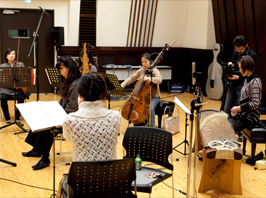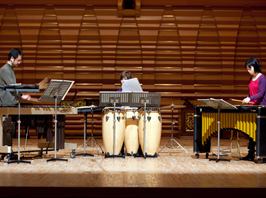The recording features a selection of Athanasiadis’ works, mostly composed during his post-doctoral fellowship at the Tokyo University of Music and the Arts in Japan (2010-11).
Although the Japanese culture has numerous aesthetic terms designed to describe as accurately as possible the governing principles of the artistic pantheon, one in particular seems to surpass the rest in terms of its complexity, associative multiplicity and ambiguity. Wabi sabi, essentially consisting of two individual terms (wabi and sabi), is a key aesthetic concept for the comprehension of the most fundamental principles of the traditional Japanese arts and music. Its study and its in-depth comprehension offers valuable answers to questions about the origin and function of simplicity, emptiness, incompleteness and imperfection, impermanence of structure, form and design often encountered in the Japanese arts. In 2004 Basil Athanasiadis started exploring wabi-sabi’s connection with Japanese instruments and its potential for contemporary music composition. The employment of Japanese traditional instruments such as the sho and the 20-stringed koto, help infuse the wabi-sabi sense of virtuosity and beauty into a contemporary music context. Athanasiadis’ works are characterised by a strong visual identity; his performances has often been accompanied by dance or stage action for example; Clouds That I Like is a setting of an excerpt taken from Sei Shonagon’s classic ‘The Pillow Book’, and the music is a reflection on this simple yet colourful and fluid imagery portrayed in the text.
Click here to download the CD review by the music writer/critic Thomas Tamvakos in English and in Greek



